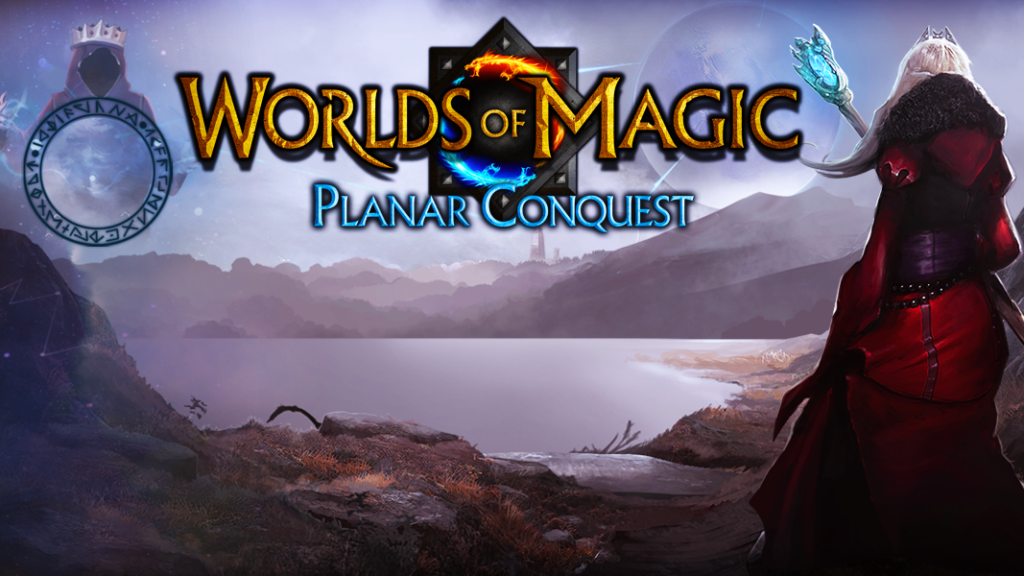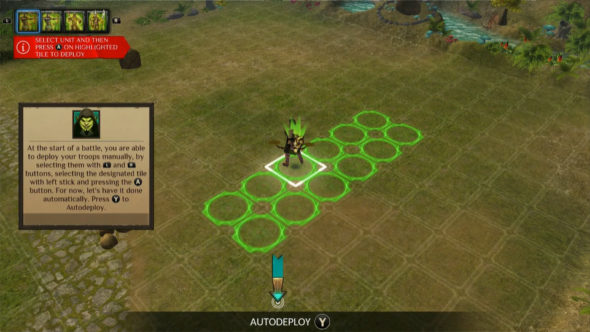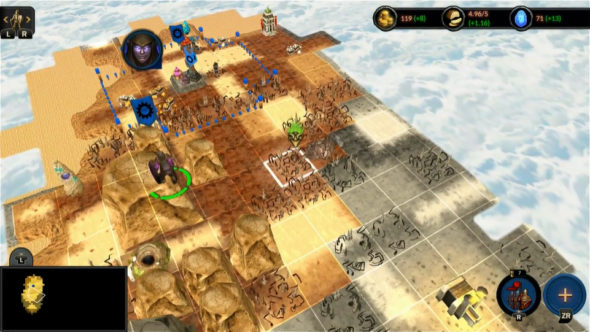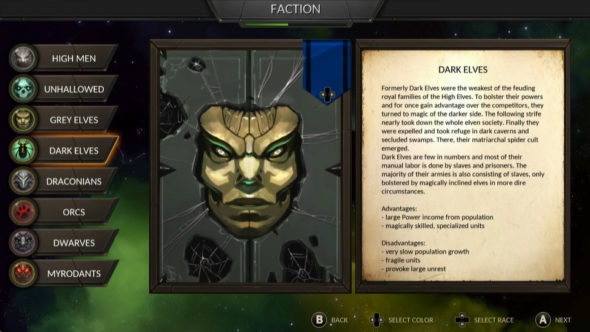
Developer: Wastelands Interactive
Publisher: Wastelands Interactive
Platform: Switch, PS4, PC, Xbox One, iOS, Android
Tested on: Switch
Worlds of Magic: Planar Conquest – Review
2016’s Worlds of Magic: Planar Conquest has been ported to several platforms, including mobile, and it now arrives on the Switch. The pitch for this 4X strategy game (eXplore, eXpand, eXploit and eXterminate) seemed very promising, the screenshots less so. Still, we were eager to find out whether Planar Conquest is worth spending some time with on the Switch.
Story
There’s a huge issue with Planar Conquest’s story: it’s non-existent. It’s a strange choice, as everything is available to set up a good story mode, perhaps even with branching paths. You’ve got six different characters to choose from, eight fantasy races to lead and a conceptually unusual world where you battle across different planes of reality -hence the title- but none of these elements are utilized to tell an engaging story. There’s a small backstory presented for both the sorcerers and the races on the selection screen, but nothing is really done with these once you are locked into the campaign; you seemingly build an empire just to build an empire. The lack of an engaging story gives you very little motivation to continue playing. Perhaps developer Master of Magic’s intent was to make you craft the backstory to your sorcerer in your own mind, but with a lack of character depth in the enemy factions, it all falls flat.
Graphics
Planar Conquest might have originally released in 2016 -four years ago- but it could pass for a strategy game from the 90s. Despite it taking place in a variety of environments, including deserts, forests and mountain ranges, everything appears lifeless and flat. Whether it’s a lava lake or the ocean, it all looks like the same re-used texture, just using a different color palette. Additionally, you’re dealing with a fixed camera, that allows you to zoom in but not rotate. This can make it difficult to navigate certain parts of the overworld and correctly identify certain elements. Another issue is legibility and visibility. Everything is tiny and difficult to read, and the game becomes nearly unplayable on the tiny screen of the Switch.
Sound
The music is the best feature of the game. Not that that’s saying much, and you’re unlikely to look up the OST after playing the game, but if everything else is mediocre, the one feature that’s executed fairly well automatically stands out. The music is varied, and adjusts to both the situation and the environment, with exciting battlefield music and a more relaxed tone to the overworld.
Gameplay
Planar Conquest is a turn-based strategy game that heavily borrows from other games in the genre. In theory, what you’re getting here is a cross between RTS classics such as Civilization and Age of Empires, and grid-based strategy titles like Fire Emblem. While this sounds amazing in theory, the execution is a letdown in pretty much every single way. You align yourself with one of six sorcerers, each one with his own strengths and weaknesses. This offers a little variety and they seem fairly well balanced against one another. Your aim is to grow an empire by expanding your city, building up an army, and attacking the other factions.
As soon as you move into battle, the overworld shifts into a turn-based battlefield. Here, units can move a set number of spaces and you are able to see the damage and hit percentages before committing. As mentioned before, the game takes cues from Fire Emblem, and just like that venerable strategy series, Planar Conquest also offers an auto-battle mode. However, the AI in Planar Conquest seemingly only has a kamikaze strategy in mind: even if your force is much more powerful than your opponents, your units will still rush forward and keep going until they die, rather than playing in such a way as to minimize casualties. Apart from strategic reasons, there’s another reason not to engage in auto-battle shenanigans though. The battles are the meat on an otherwise bare-bones experience. Should you decide to skip playing through these yourself, there isn’t a lot that Planar Conquest has to offer. However, playing through these battles becomes a chore simply because of the interface and legibility. Forget the opposing army, the real enemy here are the controls of the game. The game’s tutorial only covers the basics and you’ll find yourself having to look up the finer details of the game online. It’s a bad sign when a game forces you to look up guides, not to improve your strategy, but simply to figure out anything beyond basic button presses. Additionally, the game is pretty much unplayable in handheld mode, where everything is tiny and turns into a blurry mess. Whether this is the result of a bad port to the Switch or if this is a design choice present in other versions of the game, the result is still a hot mess.
While the battles are the part of the game you’ll likely spend most of your time on, there is, of course, an overworld where you need to expand your empire and explore the regions surrounding your capital. It’s another example of bad execution, although here it’s less about a confusing interface and more about it being a shallow experience -although the info here is limited as well, and you’ll see events occur without knowing what just happened. The world seemingly offers more than you’d expect, with hidden treasure troves guarded by monsters, monuments to explore and the ability to hire wisps to explore parts of the world. You’ll also need to micromanage your people, keeping them well-fed and happy. Unfortunately, it’s another example of the game’s lackluster approach and everything feels shallow.
Conclusion
With outdated graphics, shallow gameplay and a frustrating interface, Worlds of Magic: Planar Conquest simply doesn’t live up to today’s standards. This is a game that could have been good in theory, but the frankly terrible execution makes it tough to recommend. If you’re itching to play a new strategy game, give this one a miss and go for one of Planar Conquest’s bigger, better siblings in the genre.
Worlds of Magic: Planar Conquest - Review,








No Comments